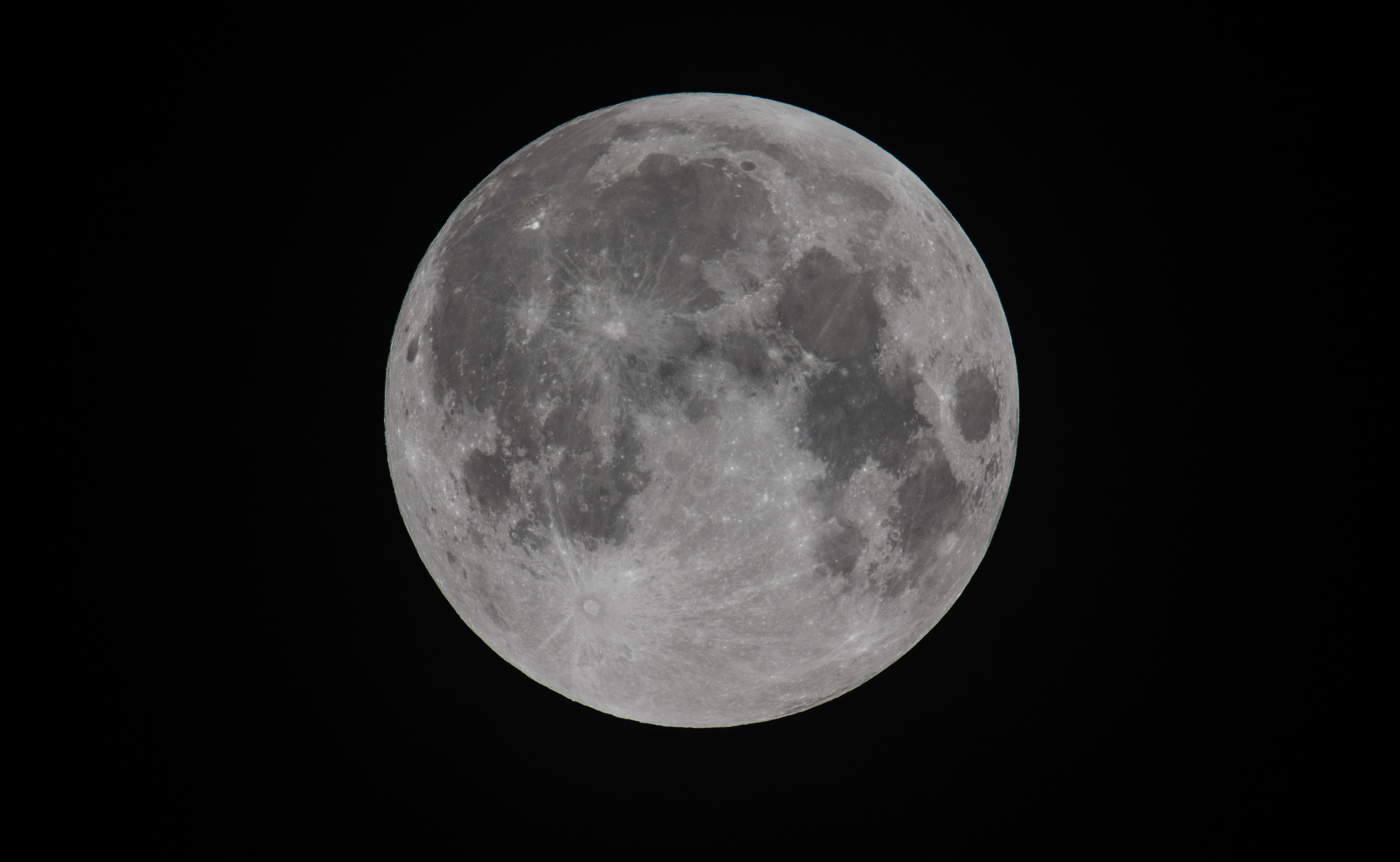Nasa defends decision to send people to moon before Mars
Space agency’s new boss says the two missions are far from incompatible

A free daily email with the biggest news stories of the day – and the best features from TheWeek.com
You are now subscribed
Your newsletter sign-up was successful
Nasa has justified its decision to return to the moon before putting people on Mars, insisting that the two missions will be “supportive of each other”.
In December, Donald Trump signed an executive order instructing Nasa to send astronauts back to the moon. Last week the agency issued a statement asking the commercial space industry for help with the mission.
In one of his first major speeches as Nasa administrator, Jim Bridenstine said on Wednesday that those waiting enthusiastically for a Nasa-funded trip to the red planet shouldn’t be worried about the agency’s current plans.
The Week
Escape your echo chamber. Get the facts behind the news, plus analysis from multiple perspectives.

Sign up for The Week's Free Newsletters
From our morning news briefing to a weekly Good News Newsletter, get the best of The Week delivered directly to your inbox.
From our morning news briefing to a weekly Good News Newsletter, get the best of The Week delivered directly to your inbox.
“If some of you are concerned that our focus in the coming years is the moon, don’t be,” he told the Humans to Mars Summit in Washington DC. “The president’s vision has emphasised that our Exploration Campaign will establish American leadership in the human exploration of Mars. We are doing both the moon and Mars, in tandem, and the missions are supportive of each other.”
“In fact, our return to the surface of the moon will allow us to prove and advance technologies that will feed forward to Mars: precision landing systems, methane engines, orbital habitation, surface habitation, surface mobility, long duration life support operations, and much more, that will enable us to land the first Americans on the red planet.”
Although the focus is currently on the moon, Space.com writes that Nasa’s upcoming Mars 2020 rover mission is searching for potentially habitable environments on the Red Planet. The agency is keen to store samples with a view to returning them to Earth for further research.
A free daily email with the biggest news stories of the day – and the best features from TheWeek.com
-
 5 cinematic cartoons about Bezos betting big on 'Melania'
5 cinematic cartoons about Bezos betting big on 'Melania'Cartoons Artists take on a girlboss, a fetching newspaper, and more
-
 The fall of the generals: China’s military purge
The fall of the generals: China’s military purgeIn the Spotlight Xi Jinping’s extraordinary removal of senior general proves that no-one is safe from anti-corruption drive that has investigated millions
-
 Why the Gorton and Denton by-election is a ‘Frankenstein’s monster’
Why the Gorton and Denton by-election is a ‘Frankenstein’s monster’Talking Point Reform and the Greens have the Labour seat in their sights, but the constituency’s complex demographics make messaging tricky
-
 NASA’s lunar rocket is surrounded by safety concerns
NASA’s lunar rocket is surrounded by safety concernsThe Explainer The agency hopes to launch a new mission to the moon in the coming months
-
 Nasa’s new dark matter map
Nasa’s new dark matter mapUnder the Radar High-resolution images may help scientists understand the ‘gravitational scaffolding into which everything else falls and is built into galaxies’
-
 Moon dust has earthly elements thanks to a magnetic bridge
Moon dust has earthly elements thanks to a magnetic bridgeUnder the radar The substances could help supply a lunar base
-
 How Mars influences Earth’s climate
How Mars influences Earth’s climateThe explainer A pull in the right direction
-
 The ‘eclipse of the century’ is coming in 2027
The ‘eclipse of the century’ is coming in 2027Under the radar It will last for over 6 minutes
-
 NASA discovered ‘resilient’ microbes in its cleanrooms
NASA discovered ‘resilient’ microbes in its cleanroomsUnder the radar The bacteria could contaminate space
-
 Artemis II: back to the Moon
Artemis II: back to the MoonThe Explainer Four astronauts will soon be blasting off into deep space – the first to do so in half a century
-
 The mysterious origin of a lemon-shaped exoplanet
The mysterious origin of a lemon-shaped exoplanetUnder the radar It may be made from a former star